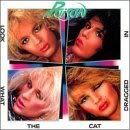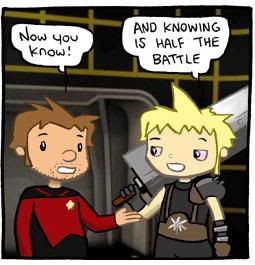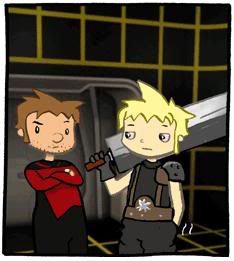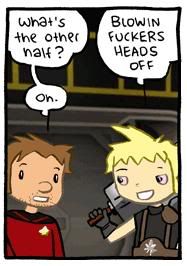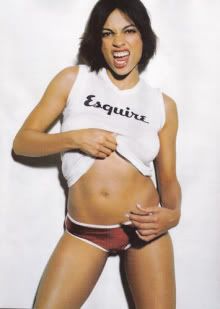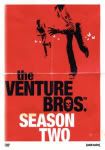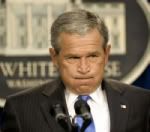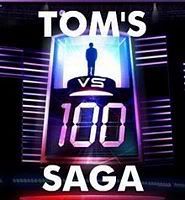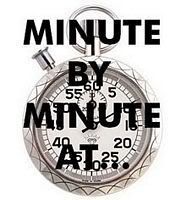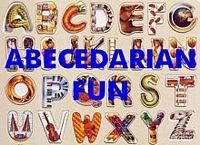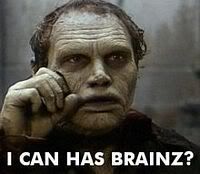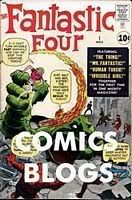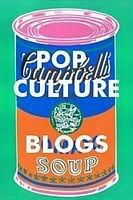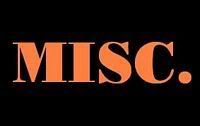Boy, have I got a backlog of stuff to talk about. But I'll start with the most enjoyable theatrical experience I've had this year:
The Devil's Rejects. And no, I'm not kidding. I had a
blast.
A few mild spoilers are ahead, if you care.
I didn't expect too much from Rob Zombie's sequel to
House of 1,000 Corpses, which had its moments of creepiness and sick humor, but which mostly irritated me with its MTV-type quick cuts and camera trickery which to me are more indicative of ADD than an actual directorial style. Kind of like a Rob Zombie video. But
Devil's Rejects somehow hits all the right notes, and it hits so many
different notes. It goes from Peckinpah-influenced shootouts to Tobe Hooper-inspired dirty horror; its humor ranges from the light and ridiculous (a movie critic's examination of the aliases used by the Rejects -- all Groucho Marx characters) to the sick and awful (vehicular manslaughter has never been funnier); it has scenes of intensely claustrophobic terror which open up into the panoramic vistas of a road movie. And Zombie has laid claim to a more personal directorial style with this film. Zombie, weird as it is to say it, has grown leaps and bounds as a filmmaker and storyteller from his first project to his second.
Part of my immense enjoyment of this movie, I have to admit, comes from the context. I saw it on Sunday as part of an early celebration of my birthday, which was Monday. I went with a group of similarly-minded friends who were very enthusiastically into the film, laughing and clapping throughout. And I may or may not have topped off my Coke with a bottle of Jack Daniels I snuck into the theater. I can neither confirm nor deny this.
But still! What it does, it does
very well. It's less a straightforward horror film than its predecessor; Zombie
has said that if
1,000 Corpses was his homage to
Texas Chainsaw Massacre,
Rejects owes just as much to
Dirty Harry or
Bonnie and Clyde, or, as mentioned earlier, the sadism of Peckinpah, perhaps best exemplified by
Straw Dogs. The horror and violence this time out are more humanized, and all the more brutal and affecting for it. The characters, while certainly still whacked-out, aren't as inexplicably bizarre, and therefore easily dismissed, as they were in the first film. Here, they're not quasi-supernatural horror monsters; they're just mean and evil criminals, which makes their actions far more brutal and chilling.
There's a lot of humor in the movie, too, a lot of cruel, dark humor, which can come and go in a flash. It's a gas to see comedian
Brian Posehn appear in the film, for example; he adds a lot of comic relief. When he gets captured by the Rejects, I was grinning, expecting some goofy interplay between them; instead, they blow his brains out almost instantly. That jolted me but good. It was an excellent reversal of expectations: there's your punchline, sucker! Then there's my favorite line of the film, funny but dripping with menace at the same time: "Boy, the next word that comes out of your mouth better be some brilliant fuckin' Mark Twain shit. 'Cause it's definitely getting chiseled on your tombstone."
This is one of the best B-movies the '70s never made. It's chock full of all kinds of actors from memorable '70s or early '80s roles, such as Michael Berryman, the bald mutant from
The Hills Have Eyes, to Ken Foree, Peter from the original
Dawn of the Dead (and the televangelist in the remake who gets to say, "When there's no more room in hell, the dead will walk the Earth"), to (
Ian had to point out these next two to me) P.J. Soles, who was so memorably killed in
Halloween, and E.G. Daily, probably best known as Dottie in
Pee Wee's Big Adventure, to Leslie Easterbrook and Priscilla Barnes, formerly of
Laverne & Shirley and
Three's Company, respectively, to Sid Haig, who stars as the killer clown Captain Spaulding, who is a graduate of any number of '70s crime flicks (with a major in blaxsploitation --
Black Mama, White Mama,
Coffy,
Foxy Brown) which influenced
Devil's Rejects.
And the '70s soundtrack is fantastic. The film is bookended by two great musical sequences. The first is the escape of Baby (played by Sheri Moon Zombie, who does indeed moon the camera at every opportunity) and Otis (Bill Moseley, who is chillingly good, and for whom there is already a stupendously naive, but oddly touching,
online campaign to get him an Academy Award nomination) from a thunderous shootout between the Firefly clan and the local Sheriff's Dept; their escape, complete with '70s-style freeze frames, plays out in silence but for the Allman Brothers' "Midnight Rider," which has never sounded creepier. And the grand finale of the film, set to Skynyrd's "Free Bird," is all gorgeous helicopter shots of wide-open desert hill highways (with California very obviously substituting for the alleged Texas setting) culminating in another firefight more brutal than the opener. Say what you will about Zombie as a director -- and I'm sure you will -- the man uses soundtrack music as well as Tarantino or Scorsese.
I had a great time seeing it, but is
The Devil's Rejects actually a great film? Yes; for what it is, and what it wants to achieve, yes, it is great. It took me on a hell of a ride, it surprised me both with its humor and with its violence, which made even a horror-phile like me cringe, and it left me looking forward to another Rob Zombie film. Though it's steeped in homage, it's a tremendously original and inventive film, miles better than pretty much any horror or action film of the new millennium. I won't say it transcends the genre(s), because Sean T. Collins
recently warned us all not to; instead, I'll borrow his phrase and say it
epitomizes the genre(s).
